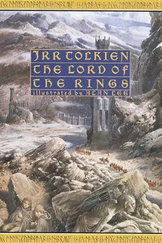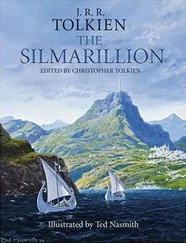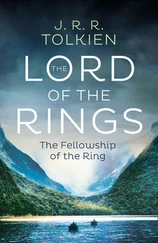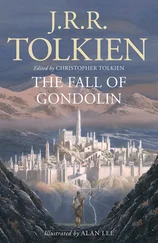J Tolkien - The Silmarillon
Здесь есть возможность читать онлайн «J Tolkien - The Silmarillon» весь текст электронной книги совершенно бесплатно (целиком полную версию без сокращений). В некоторых случаях можно слушать аудио, скачать через торрент в формате fb2 и присутствует краткое содержание. Год выпуска: 1985, ISBN: 1985, Издательство: Del Rey, Жанр: Эпическая фантастика, на английском языке. Описание произведения, (предисловие) а так же отзывы посетителей доступны на портале библиотеки ЛибКат.
- Название:The Silmarillon
- Автор:
- Издательство:Del Rey
- Жанр:
- Год:1985
- ISBN:0345325818
- Рейтинг книги:5 / 5. Голосов: 1
-
Избранное:Добавить в избранное
- Отзывы:
-
Ваша оценка:
- 100
- 1
- 2
- 3
- 4
- 5
The Silmarillon: краткое содержание, описание и аннотация
Предлагаем к чтению аннотацию, описание, краткое содержание или предисловие (зависит от того, что написал сам автор книги «The Silmarillon»). Если вы не нашли необходимую информацию о книге — напишите в комментариях, мы постараемся отыскать её.
Those interested in J.R.R. Tolkien's Middle Earth should not be without this grand volume that tells the tragic tale of the struggle for control of the Silmarils, a struggle that would determine the history of the world long before the War of the Ring.
The Silmarillon — читать онлайн бесплатно полную книгу (весь текст) целиком
Ниже представлен текст книги, разбитый по страницам. Система сохранения места последней прочитанной страницы, позволяет с удобством читать онлайн бесплатно книгу «The Silmarillon», без необходимости каждый раз заново искать на чём Вы остановились. Поставьте закладку, и сможете в любой момент перейти на страницу, на которой закончили чтение.
Интервал:
Закладка:
'spirit' in Feanor, Feanturi.
'hair' in Finduilas, Fingon, Finrod, Glorftndel.
'north' (Quenya) in Formenos; Sindarin forn (also for, forod) in Fornost.
'gloom, darkness' (Quenya huine) in Fuinur, Taur-nu-Fuin.
' ' dread', and to have been the name made for the vast and terrifying Great Sea when the Eldar first came to its shores. gaur 'werewolf (from a root ngwaw-'howl') m Tol-in-Gaurhoth. gil 'star' in Dagor-nuin-Giliath, Osgiliath (giliath 'host of stars'); Gil-Estel, Gil-galad. girith 'shuddering' in Nen Girith; cf. also Girithron, name of the last month of the year in Sindarin (The Lord of the Rings Appendix D). glin 'gleam' (particularly applied to the eyes) in Maeglin. golodh is the Sindarin form of Quenya Noldo; see gul Plural Golodhrim, and Gelydh (in Annon-in-Gelydh). gond 'stone' in Gondolin, Gondor, Gonnhirrim, Argonath, seregon. The name of the hidden city of King Turgon was devised by him in Quenya as Ondolinde (Quenya ondo= Sindarin gond, and linde 'singing, song'); but it was known always in legend in the Sindarin form Gondolin, which was probably interpreted as gond-dolen 'Hidden Rock'. gor 'horror, dread' in Gorthaur, Gorthol; goroth of the same meaning, with reduplicated gor, in Gorgoroth, Ered Gorgoroth. groth (grod) 'delving, underground dwelling' m Menegroth, Nogrod (probably also in Nimrodel, 'lady of the white cave'). Nogrod was originally Novrod 'hollow delving' (hence the translation Hollowbold), but was altered under the influence of naug 'dwarf'. gul 'sorcery' in Dol Guldur, Minas Morgul. This word was derived from the same ancient stem ngol- that appears in Noldor; cf. Quenya nole 'long study, lore, knowledge'. But the Sindarin word was darkened in sense by its frequent use in the compound morgul 'black arts'. gurth 'death' in Gurthang (see also Melkor in the Index). gwaith 'people' in Gwaith-i-Mirdain; cf. Enedwaith 'Middle-folk', name of the land between the Greyflood and the Isen. gwalh, wath 'shadow' in Delduwath, Ephel Duath; also in Gwathlo, the river Greyflood in Eriador. Related forms in Ered Wethrin, ThurIngwethil. (This Sindarin word referred to dim light, not to the shadows of objects cast by light: these were called morchaint 'dark shapes'.) hadhod in Hadhodrond (translation of Khazad-dum) was a rendering of Khazad into Sindarin sounds. haudh 'mound' in Haudh-en-Arwen, Haudh-en-Elleth, etc. heru 'lord' in Herumor, Herunumen; Sindarin hir in Gonnhirrim, Rohirrim, Barahir; hiril 'lady' in Hirilorn. him 'cool' in Himlad (and Himring?). hin 'children' in Eruhini 'Children of Eru'; Narn i Hin Hurin. hith 'mist' in Hithaeglir, Hithlum (also in Nen Hithoel, a lake in Anduin). Hithlum is Sindarin in form, adapted from the Quenya name Hisilome given by the Noldorin exiles (Quenya hisie 'mist', cf. Hisime, the name of the eleventh month of the year. The Lord of the Rings Appendix D). hoth 'host, horde' (nearly always in a bad sense) in Tol-in-Gaurhoth; also in Loss(h)oth, the Snowmen of Forochel (The Lord of the Rings Appendix A [I, iii]) and Glamhoth 'din-horde', a name for Orcs. hyarmen'south' (Quenya) in Hyarmentir; Sindarin har-, harn, harad. ia 'void, abyss' m Moria. iant 'bridge' in Iant Iaur. iath 'fence' in Doriath. iaur 'old' in Iant Iaur; cf. the Elvish name of Bombadil, Iarwain. ilm-This stem appears in Ilmen, Ilmare, and also in Ilmarin ('mansion of the high airs', the dwelling of Manwe and Varda upon Oiolosse). iluve 'the whole, the all' in Iluvatar. kal' (gal-) This root, meaning 'shine', appears in Calacirya, Calaquendi, Tar-Calion; galvorn, Gil-galad, Galadriel. The last two names have no connexion with Sindarin galadh tree', although in the case of Galadriel such - 162 - a connexion was often made, and the name altered to Galadhriel. In the High-elven speech her name was Al(a)tariel, derived from alata 'radiance' (Sindarin galad) and riel 'garlanded maiden' (from a root rig-'twine, wreathe'): the whole meaning 'maiden crowned with a radiant garland', referring to her hair. calen (galen) 'green' is etymologically 'bright', and derives from this root; see also aglar. kano 'commander': this Quenya word is the origin of the second element m Fingon and Turgon. kel-'go away', of water 'flow away, flow down', in Celon; from et-kele 'issue of water, spring' was derived, with transposition of the consonants, Quenya ehtele, Sindarin eithel. kemen 'earth' in Kementari; a Quenya word referring to the earth as a flat floor beneath menel, the heavens. kheliek-'ice' in Helcar, Helcaraxe (Quenya helka 'icy, ice-cold'). But in Helevorn the first element is Sindarin heledh 'glass', taken from Khuzdul kheled (cf. Kheled-zaram 'Mirrormere'); Helevorn means 'black glass' (cf. galvorn). khil-'follow' in Hildor, Hildorien, Eluchil. kir-'cut, cleave' in Calacirya, Cirth, Angerthas, Cirith (Ninniach, Thoronath). From the sense 'pass swiftly through' was derived Quenya cirya 'sharp-prowed ship' (cf. English cutter), and this meaning appears also in Cirdan, Tar-Ciryatan, and no doubt in the name of Isildur's son Ciryon. lad 'plain, valley' in Dagorlad, Himlad; imlad a narrow valley with steep sides, in Imladris (cf. also Imlad Morgul in the Ephel Duath). laure 'gold' (but of light and colour, not of the metal) in Laurelin; the Sindarin forms in Gloredhel, Glorfindel, Loeg Ningloron, Lorindol, Rathloriel. lhach 'leaping flame' m Dagor Bragollach, and probably in Anglachel (the sword made by Eol of meteoric iron). lin (1) 'pool, mere' in Linaewen (which contains aew [Quenya aiwe] 'small bird'), Teiglin; cf. aelin. lin- (2) This root, meaning 'sing, make a musical sound', occurs in Ainulindale, Laurelin, Lindar, Lindon, Ered Lindon, lomelindi. lith 'ash' in Anfauglith, Dor-nu-Fauglith; also in Ered Lithui, the Ashen Mountains, forming the northern border of Mordor, and Lithlad 'Plain of Ashes* at the feet of Ered Lithui. lok-'bend, loop' in Uruloki (Quenya [h]loke 'snake, serpent', Sindarin Ihug). lom 'echo' in Dor-lomin, Ered Lomin; related are Lammoth, Lanthir Lamath. lome 'dusk' m Lomion, lomelindi; see du. londe 'land-locked haven' in Alqualonde; the Sindarin form lond (lonn) in Mithlond. los 'snow' in Oiolosse (Quenya oio 'ever' and losse 'snow, snow-white'); Sindarin loss in Amon Uilos and Aeglos. loth 'flower' in Lothlorien, Nimloth; Quenya lote in Ninquelote, Vingilote. luin 'blue' in Ered Luin, Helluin, Luinil, Mindolluin. maeg 'sharp, piercing' (Quenya maika) in Maeglin. mal-'gold' in Malduin, Malinalda; also m mallorn, and in the Field of Cormallen, which means 'golden circle' and was named from the culumalda trees that grew there (see cul-). man-'good, blessed, unmarred' in Aman, Manwe; derivatives of Aman in Amandil, Araman, Umanyar. mel-'love' in Melian (from Melyanna 'dear gift'); this stem is seen also in the Sindarin word mellon 'friend' m the inscription on the West-gate of Moria. men 'way' in Numen, Hyarmen, Romen, Formen. menel 'the heavens' m Meneldil, Menelmacar, Meneltarma. mereth 'feast' in Mereth Aderthad; also in Merethrond, the Hall of Feasts in Minas Tirith. minas 'tower' in Annuminas, Minas Anor, Minas Tirith, etc. The same stem. occurs in other words referring to isolated, prominent, things, e.g. Mindolluin, Mindon; probably related is Quenya minya 'first' (cf. Tar-Minyatur, the name of Elros as first King of Numenor). mir 'jewel' (Quenya mire) m Elemmire, Gwaith-i-Mirdain, Miriel, Nauglamir, Tar-Atanamir. mith 'grey' in Mithlond, Mithrandir, Mithrim; also hi Mitheithel, the river Hoarwell in Eriador. mor 'dark' in Mordor, Morgoth, Moria, Moriquendi, Mormegil, Morwen, etc. moth 'dusk' in Nan Elmoth. nan(d) 'valley' m Nan Dungortheb, Nan Elmoth, Nan Tathren. nar 'fire' in Narsil, Narya; present also in the original forms of Aegnor (Aikanaro 'Sharp Flame' or 'Fell Fire') and Feanor (Feanaro 'Spirit of Fire'). The Sindarin form was naur, as in Sammath Naur, the Chambers of Fire in Orodruin. Derived from the same ancient root (a)nar was the name of the Sun, Quenya Anar (also in Anarion), Sindarin Anor (cf. Minas Anor, Anorien). - 163 - naug 'dwarf' in Naugrim; see also Nogrod in entry groth. Related is another Sindarin word for 'dwarf', nogoth, plural noegyth (Noegyth Nibin 'Petty-dwarves') and nogothrim. -(n)dil is a very frequent ending of personal names, Amandil, Earendil (shortened Earnil), Elendil, Mardil, etc.; it implies 'devotion', 'disinterested love' (see Mardil in entry bar). -{n)dur in names such as Earendur (shortened Earnur) is similar in meaning to -(n)dil. neldor 'beech' in Neldoreth; but it seems that this was properly the name of Hirilorn, the great beech-tree with three trunks (nelde 'three' and orn). nen 'water', used of lakes, pools, and lesser rivers, in Nen Girith, Nenning, Nenuial, Nenya; Cuivienen, Uinen; also in many names in The Lord of the Rings, as Nen Hithoel, Bruinen, Emyn Arnen, Nurnen. Nin 'wet' in Loeg Ningloron; also in Nindalf. nim 'white' (from earlier nimf, nimp) in Nimbrethil, Nimloth, Nimphelos, niphredil (niphred 'pallor'), Barad Nimras, Ered Nimrais. The Quenya form was ninque; thus Ninquelote=Nimloth. Cf. also Taniquetil. orn 'tree' in Celeborn, Hirilorn; cf. Fangorn 'Treebeard' and mallorn, plural mellyrn, the trees of Lothlorien. orod 'mountain' in Orodruin, Thangorodrim; Orocarni, Oromet. Plural ered in Ered Engrin, Ered Linden, etc. os(t) 'fortress' in Angrenost, Belegost, Formenos, Fornost, Mandos, Nargothrond (from Narog-ost-rond), Os(t)giliaih, Ost-in-Edhil. palan (Quenya) 'far and wide' in Palantiri, Tar-Palantir. pel-'go round, encircle' in Pelargir, Pelori, and in the Pelennor, the 'fenced land' of Minas Tirith; also in Ephel Brandir, Ephel Duath (ephel from et-pel 'outer fence'). quen- (quet-) 'say, speak' in Quendi (Calaquendi, Laiquendi, Moriquendi), Quenya, Valaquenta, Quenta Silmarillion. The Sindarin forms have p (or b) for qu; e.g. pedo 'speak' in the inscription on the West-gate of Moria, corresponding to the Quenya stem quet; and Gandalf's words before the gate, lasto beth lammen 'listen to the words of my tongue', where beth 'word' corresponds to Quenya quetta. ram 'wall' (Quenya ramba) in Andram, Ramdal; also in Rammas Echor, the wall about the Pelennor Fields at Minas Tirith. ras horn' in Barad Nimras, also in Caradhras ('Redhorn') and Methedras ('Last Peak') in the Misty Mountains; ran' wander, stray' in Rana, the Moon, and in Mithrandir, Aerandir; also in the river Gilraen in Gondor. rant 'course' in the river-names Adurant (with adu 'double') and Celebrant ('Silverlode'). ' plural rais in Ered Nimrais. rauko 'demon' in Valaraukar; Sindarin raug, rog in Balrog. ril 'brilliance' in Idril, Silmaril; also in Anduril (the sword of Aragorn) and in mithril (Moria-silver).
Читать дальшеИнтервал:
Закладка:
Похожие книги на «The Silmarillon»
Представляем Вашему вниманию похожие книги на «The Silmarillon» списком для выбора. Мы отобрали схожую по названию и смыслу литературу в надежде предоставить читателям больше вариантов отыскать новые, интересные, ещё непрочитанные произведения.
Обсуждение, отзывы о книге «The Silmarillon» и просто собственные мнения читателей. Оставьте ваши комментарии, напишите, что Вы думаете о произведении, его смысле или главных героях. Укажите что конкретно понравилось, а что нет, и почему Вы так считаете.












